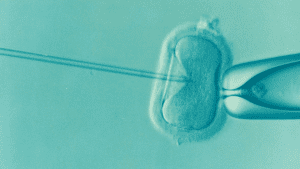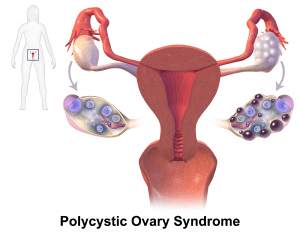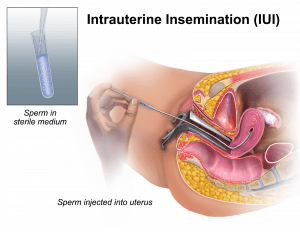Infertility is not an uncommon issue nowadays, and for those parents who can’t get pregnant naturally, it can be devastating. But currently, the internet has been brimming with information about in vitro fertilization. There’s a lot written about it that it can be confusing because not all information agrees with each other. In fact, some present with opposing details.

What Is IVF?
We have listed below several questions that mothers, fathers, families, and significant others ask about infertility and IVF, and matched them with answers that have been carefully acquired through credible fertility centers and couples that have tried to conceive through in vitro fertilization.
Answers To Your IVF Questions
-
Who Needs IVF?
The procedure is indicated for women who can’t get pregnant because of blocked fallopian tubes. It would also benefit those who are older and whose chances of utilizing lower-tech cycles are low. In fact, IVF is more preferred for them.


Same-sex partners (gays and lesbians) who want to have a baby of their own are looking into utilizing IVF. Also, individuals who need screening for genetic disorders are recommended to undergo IVF. It is essential, though, that they look deep into what is IVF and what its consequences are.
-
What Factors Commonly Affect Fertility?
The most relevant factor of all is age. As a woman gets older, she moves closer to the possibility of becoming infertile, as the number of eggs she produces decreases in quality and quantity. 32 is the initial age seen where a woman’s chances are reduced to about 20%. At 40, the chances of conceiving naturally slide down to 5%.
Similarly, when men age, the odds of them getting a woman pregnant significantly decrease.
Other factors that can affect fertility include:
Obesity, as being overweight causes hormonal problems, one of which is polycystic ovary syndrome or PCOS. On the other hand, being underweight may also result in infertility due to hormonal imbalances.


Past or current infections such as pelvic inflammatory disease, chlamydia, or severe endometriosis can hinder conception as these diseases cause blocked fallopian tubes.
Drug and alcohol abuse and cigarette smoking are also significant factors that lengthen the time that it takes for a woman to get pregnant.
-
When Is A Good Time To Start Considering IVF?
Parents who have not conceived after a year of failed attempts are the most relevant candidates for IVF. That is usually the general guideline to follow. However, medical experts agree that women who have irregular or without periods or men who have a history of vasectomy should be checked immediately. Women 34 and above who have not conceived after six months of trying are also encouraged to consider having IVF.
-
When Should One Give Up Trying?
Some countries set limitations for women who have had IVF. For example, they place a specific number of children women can conceive through IVF. The number of cycles is also limited.
In Australia and perhaps some other countries, IVF is not recommended for women who have reached their menopause. Those who also produce deficient anti-mullerian hormones are not encouraged to make attempts, as this already indicates an unfavorable outcome right from the beginning.
-
How Much Does IVF Cost?
One cycle of IVF can cost nearly $8000, though health insurance can spare you half of that amount. Other costs, including egg pickup and anesthetics, can go up to $4000.
-
What Are The Types of Fertilization Treatments?
Other than knowing what IVF is, it is also essential to know the types of IVF. There are three main forms of IVF treatments available in the market today. The first and simplest is ovulation induction. This is done by just taking tablets or injections to release the woman’s eggs regularly.
Intrauterine insemination is the second form, where the male sperm is collected and implanted directly into the woman’s uterus. And the third is in vitro fertilization, where the woman’s eggs are kept and nurtured in the laboratory and transferred to her womb after a few days when all is well.


-
How Can One Best Prepare For IVF?
Lifestyle modification may seem quite cliché, but it is the best way to prepare for treatment. Both men and women should practice eating healthy. If one or both of them are smoking, then it is best to quit. As mentioned above, obesity results in the lesser likelihood of getting pregnant, so watching what you eat is recommended. Men who smoked cigarettes and marijuana were found to have damaged sperms, and women smokers underwent early menopause. Sufficient exercise or physical activity has also shown some positive outcomes.
-
Are There Any Side Effects On Kids Conceived Through IVF?
An Australian study showed that more than 500 individuals born through IVF were healthy, even healthier compared to a group of individuals who were born through the natural method. Also, the oldest recorded IVF product is currently 35 years old.
Although most children born through this not so simple procedure are relatively healthy, some have also shown to get fevers and asthma more frequently. Still, these are the only cases reported recently.


IVF is a safe procedure that has helped many couples conceive and have the babies they’ve always dreamed of having despite their reproductive abnormalities.
FAQs On What Is IVF
What is IVF, and how does it work?
IVF is an acronym that means in vitro fertilization. It is among the most popular forms of assisted reproductive technology that uses a combination of surgical procedures and medicine to achieve fertilization of the egg in the uterus. The woman takes some recommended medications that cause the maturation of her eggs. The doctor then takes the eggs out of her uterus and combines them with the sperm from the lab. After this, the doctor returns one o more fertilized eggs into her uterus (read further here: https://www.mayoclinic.org/tests-procedures/in-vitro-fertilization/about/pac-20384716). If these eggs implant into the uterine lining, then pregnancy occurs, and the process has succeeded.
How long does it take to get pregnant with IVF?
During the process, the mature eggs of the woman are taken from the ovaries and are mixed with the sperm for fertilization. When this is done, the eggs are returned as embryos into the uterus. This whole process of IVF takes approximately three weeks. Often, the process is separated into two or more methods, which will take more than just three weeks.
Why do people use IVF?
People who resort to undergoing IVF are those women who desperately want to get pregnant. It is also done to help treat the causes of infertility, which includes defective fallopian tubes or advanced maternal age. All these can be a result of a prior reproductive procedure or pelvic inflammatory disease.
Are IVF babies healthy?
Most children who are products of IVF are healthy, although there has been a little increase in health issues like low birth weight, birth defects, and premature births. IVF has only been available to us for 40 years, so the long-term effects have not yet been thoroughly looked into.
How do you qualify for IVF?
According to the National Institute for Health and Care Excellence (NICE), women under age 40 are qualified and given three cycles of IVF procedures but only if they have not been pregnant successfully after undergoing artificial insemination; and if the couple has been struggling to get pregnant through unprotected sex but has been unsuccessful for the past two years. Women who are between the age of 40 and 42 are also qualified.
What causes failed IVF?
The quality of the embryos is the most commonly found cause of IVF failure. A lot of embryos are not able to implant after they have been transferred back to the uterus because they are defective. Although they may look healthy while they are in the lab, in the end, they may have defects, and they eventually die instead of growing.
Is the IVF procedure painful?
The answer to this question is not simple, as there are different pain levels for the various steps of the IVF process. The process of preparation is usually scary. The process of preparing the ovaries and the whole gamut of injecting medications on the patient has a pain level of 4, along with the ultrasound monitoring and ovarian stimulation, which is the next step. The most painful is the egg retrieval process. Some patients agree to take oral anxiety medications to control their anxiety.
Does IVF make you gain weight?
There is fluid retention seen during the final ovulation stage of the IVF process, and this causes weight gain in some women. This is only temporary, however. When this part of the ovulation phase ends, the hormones that have caused the retention are flushed out of the system through urine.
How much does IVF cost?
The approximate price for one IVF cycle is about $12,000, but the necessary IVF process can cost more or less $15,000. It may also be lower, like $10,000, but not lower than $10,000. These prices do not usually include the medications that are used in conjunction with the whole IVF process, which may be at a range between $1,500 and $3,000.
Can you choose gender with IVF?
Choosing the gender of your baby is not as hard as it might have been before, especially with the current developments in IVF. After the whole process of IVF, when the eggs are implanted into the uterus, the doctor can take out one cell from the embryo to explore its chromosomes. This process is known as a preimplantation genetic diagnosis.
Are IVF babies healthy?
Research-based evidence confirms that approximately 5 million children from across the globe were born from IVF, and most of these children are healthy. Experts and other medical health professionals tell parents that in general, IVF is safe, and children born from the process grow to become healthy adults.
Can you die from IVF?
The death of mothers who gave birth from IVF is rare according to studies, but they do happen. In a specific British journal, on the other hand, there were 42 reported maternal deaths per 100,000 pregnancies through IVF, while there are six deaths reported for every 100,000 healthy pregnancies.
Last Updated on January 12, 2023 by Rejie Salazar
DISCLAIMER (IMPORTANT): This information (including all text, images, audio, or other formats on FamilyHype.com) is not intended to be a substitute for informed professional advice, diagnosis, endorsement or treatment. You should not take any action or avoid taking action without consulting a qualified professional. Always seek the advice of your physician or other qualified health provider with any questions about medical conditions. Do not disregard professional medical advice or delay seeking advice or treatment because of something you have read here a FamilyHype.com.